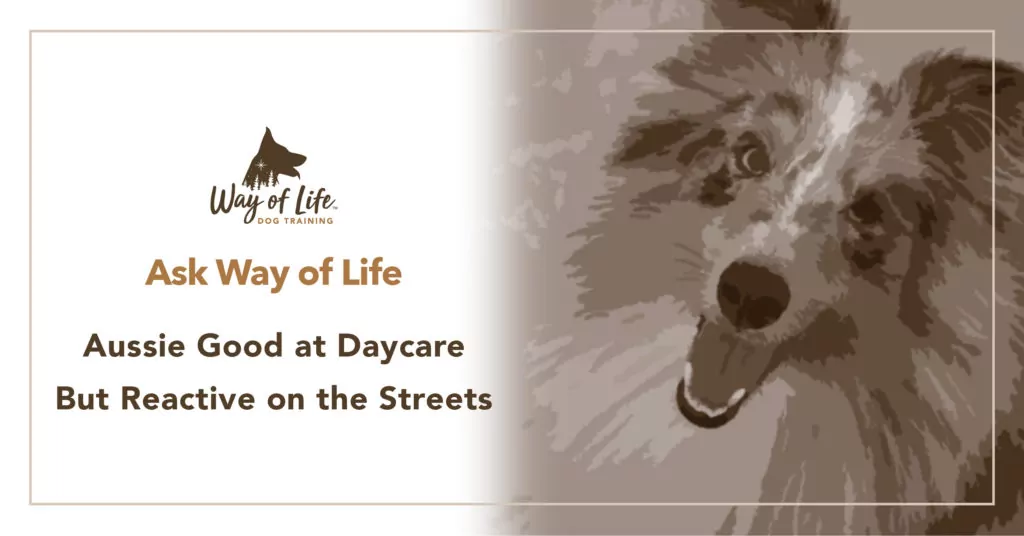
Q: We have a 2.5-year-old Aussie shepherd that is reactive toward both people and dogs on leash, and in and around our house. He goes to daycare one day a week and seems to be anxious there as well, but allows the staff to touch him and interacts OK with the other dogs. He also stays with the breeder that we got him from whenever we go away, as she boards dogs, and he is fine up there as well. Anyway, we need help to try and alleviate his anxiety and reactivity and I’m hoping you can help us.
A: Thanks very much for reaching out to us about your reactive Aussie. I’ll start by commenting on the dog’s behavior at daycare and at the breeder’s, contrasted with his behavior elsewhere, because I often hear comments like these:
He seems fine with other dogs at the dog park but reacts to dogs on the street.
He is OK with his friends at daycare but lunges at other dogs in the park.
He likes our two other dogs but is aggressive to any other dog.
In daycare, at the dog park, and at home with the other dogs, dogs are moving freely and of their own will. That’s not the case when they’re on leash and there is trouble in the dog-human relationship. In this instance, the leash does not signify trust. Rather, it makes it impossible for the dog to take charge of the situation, which they clearly feel they cannot trust their human to do. Ultimately, reactivity is not about whether a dog is good with other dogs. It’s about how the dog has learned to behave around other dogs and how much they feel they can rely on the human at the other end of the leash.
As well, breed matters. Aussies can be intense dogs who are less interested in socializing and gallivanting with other dogs and more interested in getting things done. They are accomplishment junkies, and activities such as daycares and other such forms of socialization do not leave dogs like Aussies necessarily fulfilled. Activities that are structured and involve mental and physical challenges, such as agility, scent work, camping and hiking, water sports, and so on are more up an Aussie’s alley.
Another aspect that is essential to all dogs, but particularly to herders like Aussies, is their sense of whether life is organized and the people are in charge. Herders are organizers at the core and when the home environment lacks law and order, this explains the reactivity challenges that you’ve also been experiencing on home turf. This is why one of the key pillars of the Way of Life Method is Managing Space and Boundaries. We encourage you to grab a copy of the book and find out how rethinking key aspects of your dog’s way of life, including socialization and managing space and boundaries, can make the world of a difference, from the inside out, to your dog’s behavior at home and beyond.
To find out more about why dogs become reactive and Way of Life solutions, check out this free guide: https://wayoflifedogtraining.com/dog-reactivity/